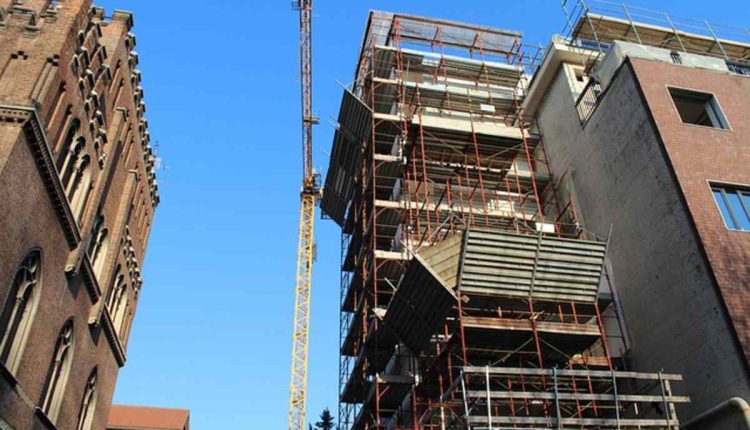What You Need to Know About a Commercial Remodel
Remodeling commercial spaces involve significant alterations to their exterior and interior structures, distinguishing it from renovation, which typically only makes minor modifications. Find out the best info about commercial renovation.
Small-scale commercial remodels typically consist of cosmetic upgrades that focus on rebranding and improving customer experiences, typically by selecting colors consistent with brand standards, purchasing premium furniture, and installing unique tile flooring.
Design
Design is an integral element of commercial remodels. It helps determine the materials available and the size, cost, and motives behind renovation projects, such as improving energy efficiency or meeting LEED certification standards. Furthermore, designing should ensure compliance with any Certificates of Occupancy issued for buildings being renovated.
Redesigning your business can increase its value, reduce depreciation, improve customer experience, and enhance brand recognition – retail stores often redesign their floorplan to optimize customer flow and increase sales.
This process begins with pre-design development, an investigative procedure for discovering an owner’s needs for their property. A commercial general contractor should then discuss any concerns with them and assess how their property operates to prepare logistic plans that minimize disruption of business operations during construction. It would also be wise to meet with tenants before beginning any work on their premises.
Planning
Remodeling existing commercial structures involves significant alterations, reconstructions, and additions that reduce overall costs while increasing value and functionality. Although remodeling may be less expensive than constructing a new system, you should still treat it as an investment and consult a professional architect who can help determine your long-term return on investment and create an efficient yet aesthetically pleasing space for you to utilize.
Remodels can transform the appearance of buildings to attract customers or renters more effectively and increase their value. Commercial remodels take time, so ensure everything is completed accurately for maximum benefits.
First, assess the needs of your business. For example, employees might benefit from new bathrooms or an open layout to facilitate communication; solar panels could also help reduce energy use. Remodeling commercial properties is often complex, so work with an experienced contractor when remodeling commercial spaces – consult a general contractor before beginning this endeavor!
Budgeting
Once you have decided on a remodeling project, the next step should be determining its costs. Unfortunately, this can be challenging because prices vary based on project details, location, and local building codes. For example, a more prominent building will cost more to remodel than its smaller counterpart. In addition, costs depend on construction complexity and materials used, and design and architecture services needed.
Renovations can be an excellent way to refresh and revitalize your business and increase productivity. Still, it is vital to stay within your budget, follow through on plans, and consider any long-term investment returns for your company.
Step one in budgeting your project involves creating a conceptual design. This step allows your architect to get creative and develop an efficient yet pleasing layout; it also allows you to stay current on city code requirements.
Contracting
Commercial remodeling is an effective way for businesses to maximize their space. It can declutter cluttered areas, reshape rooms according to company needs, and increase efficiency and customer service levels.
The contractor must secure the appropriate permits before any work can begin on a commercial remodel. Depending on the size and scope of the project, this may take some time, while complying with various environmental and safety regulations is also an essential component.
Contractors often discover hidden issues during the demolition phase, such as plumbing leaks, pest infestation, roof leakage, or poor wiring – this can increase both costs and lengthening times of projects.
Once construction is completed, code officials will conduct a comprehensive inspection to ensure it satisfies the required standards, such as compliance with the Americans with Disabilities Act. If any discrepancies arise during this inspection process, contractors must correct them before being awarded their certificate of occupancy. Some commercial properties operate while under remodeling, but this can delay completion and cause complications for employees and customers.
Construction
Remodeling commercial spaces don’t only involve updating their aesthetics – it can also help customers and clients feel more at home in your room, such as adding storage closets in retail areas or reconfiguring offices to promote a better business flow. Remodeling can improve energy efficiency by installing new lighting, appliances, and heating/cooling systems.
Construction work can be highly disruptive to businesses, so undergoing a commercial remodel could require temporary relocation for some operations while work is completed. Other methods for running operations may include hiring contractors to work during off hours or weekends when no one is open and sealing off portions of their building with curtains.
Demolition is often an essential step in construction projects and can be noisy and messy. Contractors should strictly follow all safety protocols to protect employees and customers during demolition activities. Furthermore, painting and finishing processes often release VOC emissions into the atmosphere for extended periods, which will have lasting impacts on indoor air quality.
Read Also: Amazing Plans to Help You Conquer the Challenge of Constructing a Storage Shed

